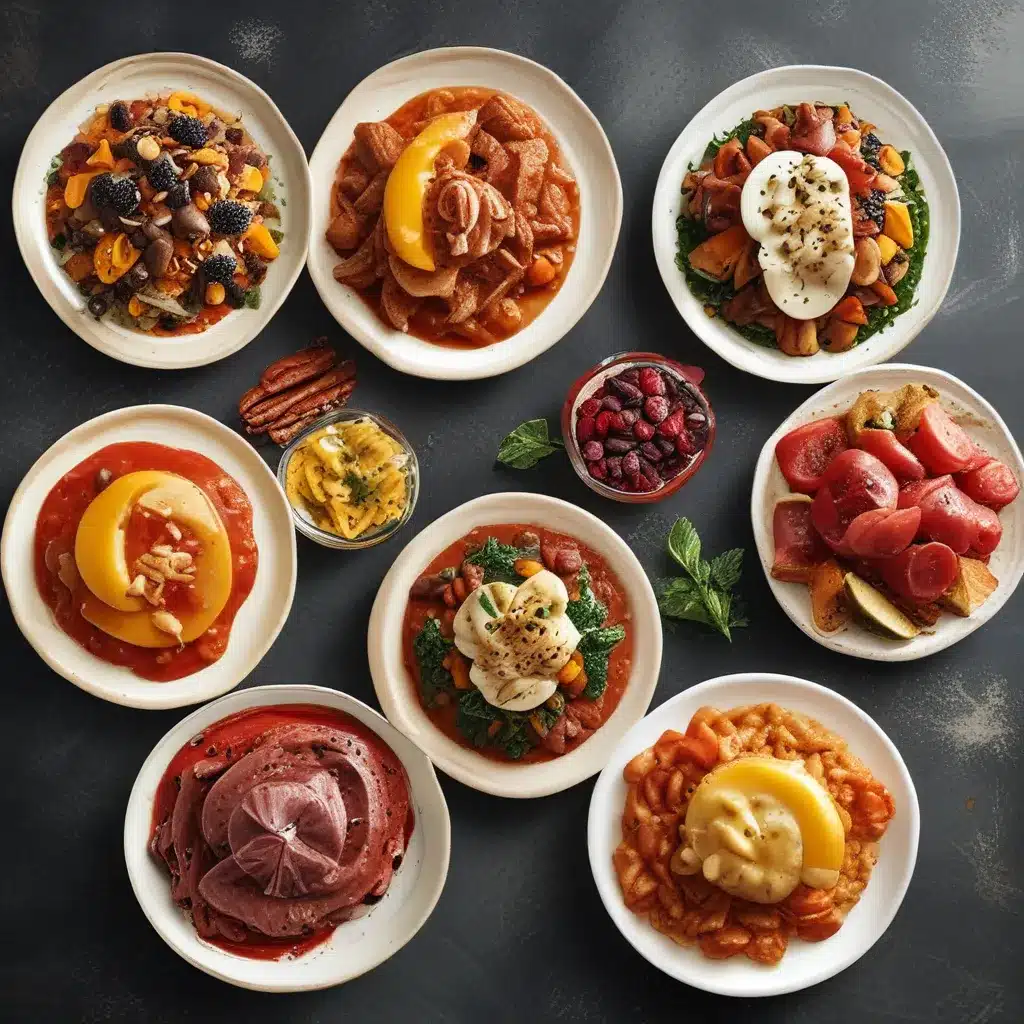
Discovering the Hidden Gem of Moroccan Cuisine in New York City
As a self-proclaimed foodie and avid traveler, I’ve had the opportunity to indulge in a vast array of global cuisines. From the bustling markets of Southeast Asia to the quaint cafés of Europe, I’ve been on a never-ending quest to uncover the most authentic and captivating flavors the world has to offer. But it wasn’t until I stumbled upon a hidden gem in the heart of New York City that I truly understood the magic of Moroccan cuisine.
El Bahia, a family-owned Moroccan restaurant nestled in the vibrant neighborhood of Greenwich Village, has been quietly making waves in the culinary scene. With its unassuming exterior and cozy, intimate ambiance, it’s easy to overlook this unassuming eatery. But as soon as you step through the doors, you’re immediately transported to the bustling souks and serene riads of Marrakech.
Authentic Ingredients, Expertly Crafted
The secret to El Bahia’s success lies in their unwavering commitment to authenticity. The owners, Fatima and Ahmed, hail from the coastal city of Essaouira, and they’ve meticulously curated a menu that pays homage to their beloved homeland. Every ingredient, from the fragrant spices to the locally sourced produce, has been carefully selected to ensure the utmost quality and flavor.
One of the true standouts is their signature tagine, a slow-cooked Moroccan stew that’s been simmered to perfection. The tender lamb, infused with a symphony of aromatic spices, melts in your mouth, while the accompanying couscous is light and fluffy, soaking up every drop of the rich, flavorful broth.
But the real showstopper is their homemade flatbread, known as msemmen. Fatima, the culinary maestro behind the scenes, spends hours carefully layering the dough with butter and folding it to create a crisp, flaky exterior and a soft, pillowy interior. It’s the perfect vessel for scooping up the bold, complex flavors of their signature dips and spreads, like the creamy, garlicky zaalouk or the tangy, zesty harissa.
Honoring Tradition, Embracing Innovation
While El Bahia’s dedication to authenticity is undeniable, the restaurant also showcases a remarkable ability to adapt and modernize traditional Moroccan dishes. Take, for instance, their interpretation of the classic bastilla, a savory pie filled with spiced meat and eggs. At El Bahia, they’ve reinvented the dish, replacing the traditional pigeon with tender, slow-roasted chicken and adding a touch of sweetness with a dusting of powdered sugar.
Another standout is their vibrant vegetarian tagine, which features an array of seasonal vegetables, chickpeas, and a blend of Moroccan spices that dance on the palate. It’s a testament to the chefs’ culinary prowess, proving that Moroccan cuisine can be equally satisfying and fulfilling for vegetarians and carnivores alike.
Immersing Diners in Moroccan Culture
But El Bahia’s appeal extends beyond the food. As you step into the intimate dining room, you’re immediately enveloped in the rich, warm tones of Moroccan decor. Ornate lanterns cast a soft glow, while intricate tilework and vibrant textiles adorn the walls, transporting you to a different time and place.
It’s not uncommon to hear the melodic sounds of traditional Moroccan music wafting through the air, accompanied by the gentle hum of conversation and the clink of teacups. The staff, many of whom hail from Morocco themselves, are warm and welcoming, eager to share the stories and traditions that have been passed down through generations.
Discovering the Joys of Moroccan Hospitality
One of the most striking aspects of dining at El Bahia is the sense of community and hospitality that permeates the entire experience. As I settled into my seat, I was immediately offered a steaming cup of mint tea, a gesture that’s deeply rooted in Moroccan culture. The servers, with their genuine smiles and attentive care, made me feel like an honored guest, rather than just another customer.
Throughout the meal, I found myself engaging in lively conversations with fellow diners, swapping stories and sharing insights about Moroccan culture. It’s this sense of camaraderie and shared appreciation for the culinary arts that truly sets El Bahia apart, making it not just a restaurant, but a cultural experience.
Embracing the Rhythm of Moroccan Time
As I savored each bite, I couldn’t help but notice the unhurried pace of the meal. There was no sense of rushed service or a constant need to turn over tables. Instead, the team at El Bahia encourages their guests to slow down, to savor the flavors, and to truly immerse themselves in the rhythm of Moroccan time.
It’s a welcome respite from the frenetic pace of modern life, a chance to disconnect from the outside world and simply be present in the moment. Whether you’re enjoying a leisurely lunch or an indulgent multi-course dinner, the team at El Bahia ensures that each interaction is imbued with a sense of warmth, authenticity, and, most importantly, time.
Discovering the Magic of Moroccan Cuisine
As I reflect on my experiences at El Bahia, I can’t help but feel a deep sense of gratitude for having stumbled upon this hidden gem. The restaurant has not only expanded my culinary horizons but has also opened my eyes to the rich tapestry of Moroccan culture, with its vibrant flavors, captivating hospitality, and unwavering commitment to tradition.
In a world where authenticity is often overshadowed by the pursuit of trendiness, El Bahia stands tall as a beacon of true cultural preservation. It’s a place where the past and present coexist in perfect harmony, where the essence of Moroccan cuisine is celebrated and elevated to new heights.
So, if you find yourself in the heart of New York City, seeking an escape from the ordinary, I urge you to venture to El Bahia and discover the magic of Moroccan cuisine for yourself. Prepare to be transported, to be nourished, and to be embraced by the warm, welcoming spirit that embodies this remarkable establishment.


